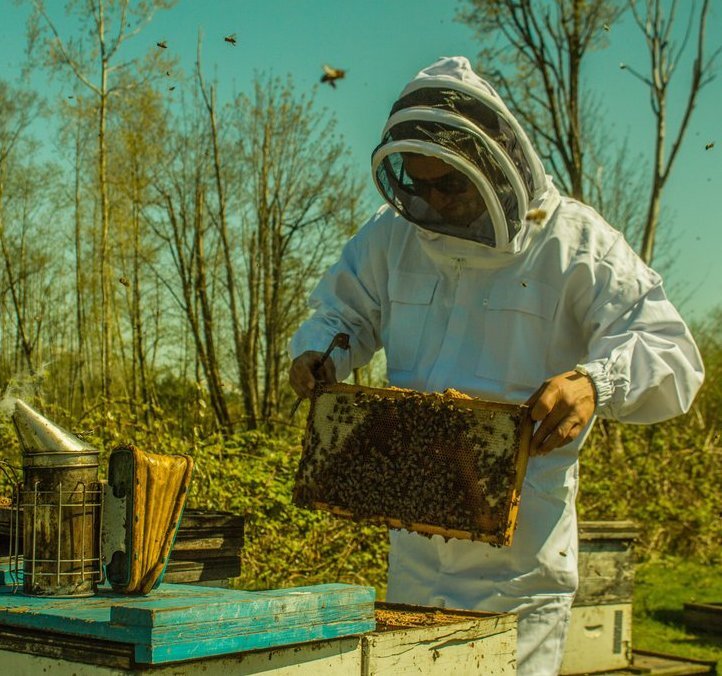Honey — Fresh Out Of the Comb
Beginning with a farm in South Surrey, then popping up at local Farmer’s Markets around the region, BCB Honey Farm recently opened its second location at the West End’s Robson Market.
A physician and researcher from Iran, Dr. Iman Tabari was interested in preventative medicine using healthy diets and herbal remedies to prevent and fight common illnesses. He came to Canada with the dream of producing medicinal honey.
Prior to coming to Canada, Tabari had performed extensive research, the first of its kind, on the effects of honey collected from “medicinal plants”. He realized that he needed a location that was ideal for such production and found Canada to be among the best options.

DR. IMAN TABARI TENDING HIS HIVES.
For research purposes, he started with 50 hives and discovered that there is a demand for pollinating honey bees among BC fruit growers, who had been dependent on the import of bees from other provinces to pollinate their crops.
The bee population in North America is in a steady decline, and it became Tabari’s mission to revive the B.C. bee population. He now has thousands of hives throughout the Lower Mainland and Peace River in an effort to make B.C. independent from imported bees.
His bees provide pollination services for a wide variety of crops: blueberry, cranberry, raspberry, and other local harvests found in British Columbia. Until opening a drive-through store on his farm and the Robson outlet, most of his honey had been exported internationally.
The honey you’ll find at BCB Honey Farm outlets contains raw, pure, and unpasteurized honey, harvested from ethically managed hives in farms around the Lower Mainland, using organic practices on non-GMO crops. Their specialty is cold-extracted raw clover honey.
As Tabari’s website explains, “For commercial honey to stay liquid and have a longer shelf-life, it must be filtered. In order to filter honey, it needs to be heated to some degree to be able to pass through a filter. Unfortunately, during the pasteurization process, most, if not all of the goodness from the honeycomb is lost due to the heat. All the vitamins, enzymes, and nutrients are thereby destroyed. Pasteurized honey sold in stores is just a “sweetener” from honey.”
Tabari’s raw honey is unpasteurized and unfiltered. “It retains the goodness of the honeycomb: the bee pollen, propolis, royal jelly,” he adds.
Click here to read the full article on the West End Journal.
